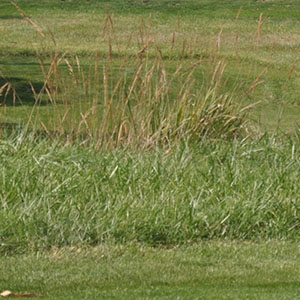Calendar Icon
Feb 17, 2015
![]() RSS
Submit a Story
RSS
Submit a Story
A team of UNL researchers and USDA engineers has found that the use of narrow grass hedges on agricultural plots can limit the amount of animal waste carried in storm runoff – and with it antibiotics and bacteria resistant to antibiotics – into nearby streams.
Those findings from a 2012-13 project, funded by the National Pork Board, were published Jan. 23 in the Journal of Environmental Quality and on the JEQ's websites for agronomy, crops and soils.
The team included civil engineering assistant professor Xu Li and associate professor Shannon Bartelt-Hunt, Nebraska Water Center research associate professor Dan Snow, statistics professor David Marx and civil engineering graduate student Bhavneet Soni, who has since graduated with a master's degree and has begun working for a Nebraska-based engineering firm . USDA research engineers John Gilley and Bryan Woodbury, who are also biological systems engineering adjunct faculty, are also part of the team
In the study, which was conducted in the summer of 2013 at the Rogers Memorial Farm, the UNL team applied livestock manure collected from the USDA Meat Animal Research Center to the soil with and without a grass hedge and then simulated multiple rainfall events.
A narrow hedge of grasses native to Nebraska, constructed at the bottom of the downslope, created a natural filter between the manure-amended soil and surface water downhill from the field. The storm runoff was limited to a collection area immediately downhill of the fertilized soil. That, Li said, allowed the antibiotics and bacteria to degrade naturally because of exposure to sunlight and other environmental factors, and significantly reduced the amount of contaminants in the stream.
Li said the use of antibiotics in animal agriculture has created concerns about how those antibiotics and the residual bacteria that become resistant are introduced into the environment. When animal manure is applied to soil – most often as a fertilizer or soil conditioner – it is feared that those contaminants can also be introduced to surface water and plants.
"Because of the tremendous economic and animal health benefits, it is unlikely that today's livestock production could occur without the use of antibiotics" Li said. "One way to limit environmental impacts is to development best management practices to control the transport of these manure constituents.
"This grass hedge is very easy to implement in the field and provides agricultural producers and farmers with an economical approach to prevent the proliferation of these manure constituents."
Submit a Story
